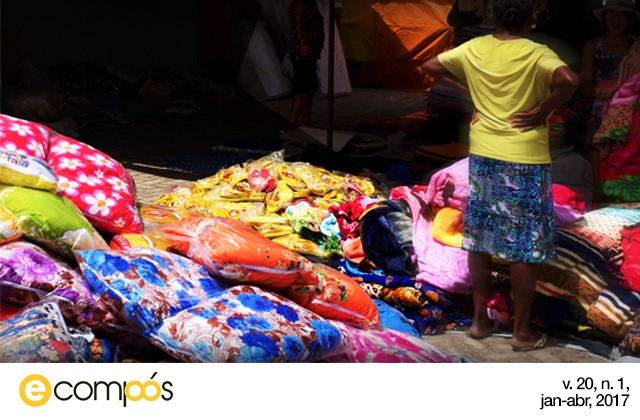Disappearing Landscapes. Cinema in Pernambuco and its relation with space
DOI:
https://doi.org/10.30962/ec.1348Keywords:
Paisagem. Desaparição. Cinema ContemporâneoAbstract
The cinema made in Pernambuco has emphatically outlined its concern with space, especially through documentaries and features that elaborate on the changes in the landscapes of the region and cities (mainly Recife). This paper seeks to analyze the relationship between film and landscape in contemporary cinema from four films made in Pernambuco in the last few years: “Avenida Brasília Formosa” (Defiant Brasilia, 2010) by Gabriel Mascaro, “O som ao redor” (Neighboring Sounds, 2012) by Kleber Mendonça Filho, “Eles voltam” (They’ll come back, 2013) by Marcelo Lordello and “Brasil S/A” (2014) by Marcelo Pedroso. Being so different in texture, genre and nature, these films have in common the production of images of transition, that register the disappearance of forms of life, changes of the landscape and the ruins both of old ways of life and the novelties of predatory capitalism – that in some ways are born already obsolete. One of our objectives is also to discuss what is the role of these “images of disappearance” (of landscapes, of cities, of people, of habits) in the constitution and affirmation of regional cinema in Brazil.Downloads
Downloads
Published
How to Cite
Issue
Section
License
The submission of originals to this journal implies the transfer, by the authors, of the printed and digital publication rights. The copyrights for the published articles belong to the author, with the rights of the journal over the first publication. The authors can only use the same results in other publications, clearly indicating this journal as the source of the original publication. Because we are an open-access journal, the free-of-charge,educational, scientific, and non-commercial use of the papers is allowed, as long as the source is cited.
Authorship
Any person who has effectively participated in the conception of the study, the development of the experimental part, the analysis and interpretation of data and the final wording, is considered as an author. By submitting an article for publication in E-Compós Journal, the author agrees with the following terms: 1. The author keeps the rights on the article, but its publication in the journal automatically implies the full and exclusive disposal of the copyright rights for the first edition, without payment. 2. The ideas and opinions expressed in the article are the sole responsibility of the author, not necessarily reflecting the views of the journal. 3. After the first publication, the author is authorized to take additional contracts, independent of the journal, for the dissemination of the paper by other means (e.g. when publishing in the institutional repository or as a book chapter), provided that the complete citation of the original publication. 4. The author of a published article is allowed and is stimulated to distribute his work online, always with the proper citation of the first edition.
Conflicts of interest and research ethics
If the developed research or the publication of the article may raise doubts as to potential conflicts of interest, the author should declare, in a final note, that no links to funding bodies have been omitted, as well as to commercial or political institutions. Similarly, the institution to which the author is bound should be mentioned, as well as others that may have collaborated in the execution of the study, evidencing that there are no conflicts of interest with the result already presented. It is also necessary to inform that the interviews and experiences involving human beings have obeyed the established ethical procedures for scientific research. The names and addresses informed in this journal will be used exclusively for the services provided by this publication, not made available for other purposes or to third parties. The copyrights belong exclusively to the authors. The licensing rights used by the journal consist in the Creative Commons Attribution 4.0 (CC BY 4.0) license: sharing (copying and distribution of the material in any media or format) and adaptation (remix, transformation and creation of material from licensed content for any purposes, including commercial) are permitted.



